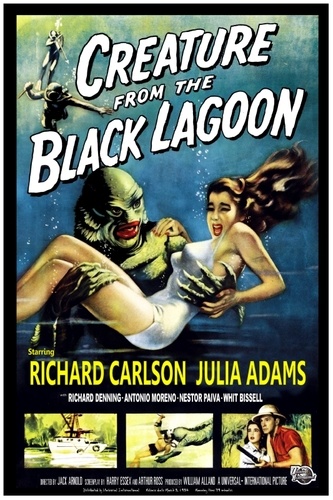If a director of a motion picture or a play loses his or her audience, the result will most likely be disastrous. The same is true for a trial lawyer.
As a lawyer, if you lose your audience, you'll more than likely lose your case. And there are many ways to lose an audience. You might, for example:
- fail to use images to simplify a case sufficiently for a jury to understand it
- fail to engage the jury with effective teaching techniques
- alienate jurors by being unaware of local customs and lingo
- behave in an unlikable fashion
- read long passages to a jury, quickly losing the jury’s interest
- fail to develop a story that a jury can care about
- fail to use storytelling techniques at all
- fail to use or fail to defend against reptile trial strategies
One other major way to lose an audience is to fail to develop characters that a jury will care about. If you don’t develop such characters, your jury will either not care about your side or will turn against your client from the start.
Unfortunately, about half of all trial teams fail to properly develop the characters in their litigation story, and their cases suffer terribly for it. The excuses are numerous: from “We’re a big company, we don't have individual characters” to “Everyone on our side is perceived as bad.” These are just excuses. I can guarantee that 99.9 percent of the time, there will be characters that can be developed.
I was reminded of the importance of character development on a cross-country flight recently. While browsing through the choice of 200 alphabetically sorted free movies, I started up a superhero/comic book film Logan. It was a poor choice. Every single character was repulsive from the start - even iconic and beloved actor Patrick Stewart.
I made it 16 minutes into the film before stopping the movie and firing off an email to a friend who works in the superhero/comic industry to complain about how terrible this film was. He laughed it off, and I moved on -- eventually landing on a film that I knew was an award winner but feared might be too Hollywood self-indulgent - The Shape of Water.
I didn't know anything about the film, but quickly came to learn that it was set in the 1960s and the story centers around a mute, isolated woman who works as a cleaning lady in a top-secret government laboratory and falls in love with a strange amphibious creature.
Just as Pixar can make me care about a trash robot named Wall-E or Steven Spielberg can make me feel for an alien or sick dinosaur, director and writer Guillermo del Toro made me deeply care about a mute woman and a water denizen reminiscent of the Creature from the Black Lagoon.
How was this achieved? How could I care about two characters with limited ability to communicate? How could this movie win Best Picture?
The answer to these questions is simple. The director and everyone involved with the film grabbed my attention and made me care.
In the courtroom, I've seen dull openings transformed into record-setting results and winning openings presented by trial lawyers willing to take the time required to develop the characters of their trial story for the jury. It is possible in every case.
Don't be team Logan. Be Guillermo del Toro. Every opening statement deserves to be your best picture, and with a little help from the right muse, you can get there every time.
Other A2L Consulting free resources about litigation storytelling, opening statements, and trial presentation include:
- Conflict check: Be the first to retain A2L
- Three Top Trial Lawyers Tell Us Why Storytelling Is So Important
- Your Trial Presentation Must Answer: Why Are You Telling Me That?
- Free Download: 219-Page Opening Statements Toolkit E-Book
- Are You Smarter Than a Soap Opera Writer?
- 10 videos to help litigators get better at telling stories at trial
- Free Webinar: Storytelling for Litigators
- 11 Things Your Colleagues Pay Litigation Consultants to Do
- 21 Reasons a Litigator Is Your Best Litigation Graphics Consultant
- Free Download: Storytelling for Litigators
- 5 Essential Elements of Storytelling and Persuasion
- Storytelling Proven to be Scientifically More Persuasive
- Storytelling at Trial Works - But Whom Should the Story Be About?






Leave a Comment